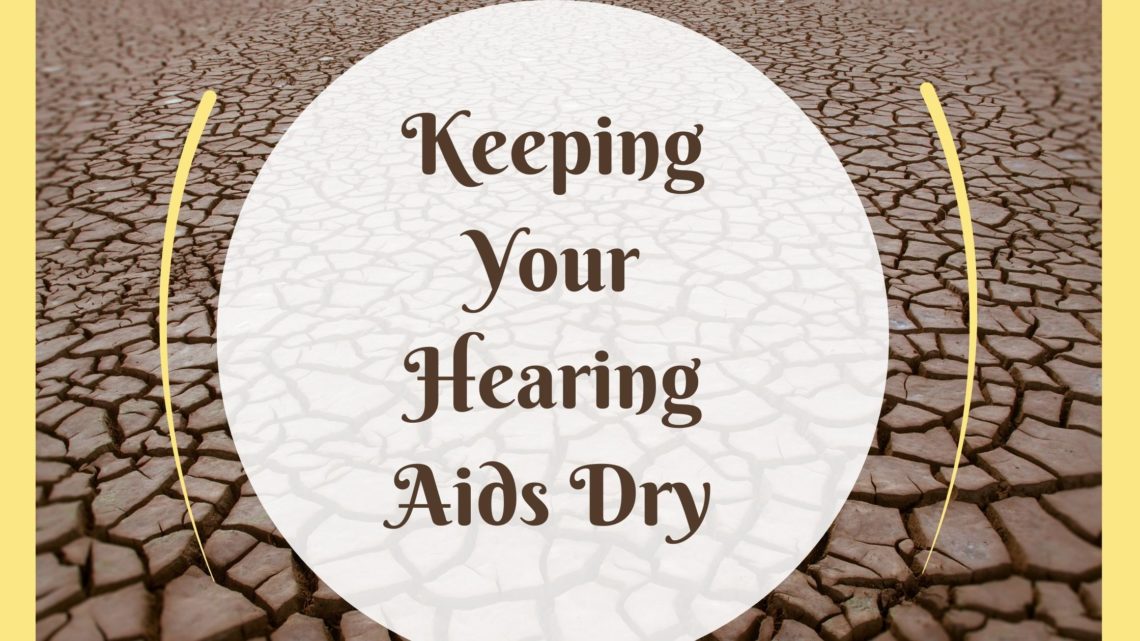When we first get our hearing aids, we pledge to take as good care of them as possible. These devices are not only incredibly helpful for communication, but a huge investment too. Despite how careful we try to be, mistakes do happen. It’s par for the course when we spend day after day with our hearing aids, amplifying what we hear, from the moment we wake up till the time we rest. You can account for everything and still end up getting stuck in an unexpected rainstorm, or step in the shower and simply forget to take them off. Sometimes even the humidity of the summer is enough to cause your hearing aids to collect too much moisture. While water and hearing aids don’t mix, there are a few tips that can help keep your hearing aids moisture-free.
Moisture and Hearing Aids
Hearing aids are tiny electronic devices that can be programmed to only amplify the specific sounds you need to hear. They continue to become more advanced offering greater ease of use and nuanced sound. However, even state-of-the-art technology is still susceptible to moisture. While several hearing aids on the market boast water resistance, a 100 percent waterproof hearing aid has still not been introduced. A buildup of moisture in your hearing aids or an unexpected dunk in the water can quickly cause short circuits and corrosion which render your important assistive listening device useless.
Keeping Your Hearing Aids Dry
If you imagine how you treat your smartphone, most of us would never intentionally leave them out in the rain, because they’d get ruined. Similarly, think of your hearing aids. If you’ve been out in the rain, make sure to dry off your hearing aids to prevent future damage. People come to rely on hearing aids to connect to others, stay engaged and active in life. An interruption in the functionality of these devices can not only mean that you have to struggle to keep up with the conversation, but that you are less aware of your surroundings. This is why people who are not using hearing aids are at a higher risk of accidents and falls leading to hospitalization.
To ensure there is no interruption in the use of your hearing aids make sure that you clean your devices regularly to remove excess dirt, ear wax, and moisture build-up. Open the battery door to disconnect the power source and allow any moisture in the battery door to dry, rather than causing corrosion around the battery terminals.
Hearing Aid Dryers
If you rely on hearing aids to help you each day, then it is a good idea to add a light cleaning of them at the end of every day. Another wise investment in the care of your hearing aids is a hearing aid dryer or dehumidifier. Some models of dryers use air to dry your hearing aids overnight while others use UV light to evaporate moisture away from your tiny electronic devices. You can also get hearing aids dryers that dry your devices
Some hearing aid dryers use desiccants, which absorb moisture away from your electronics which keep your circuits running smoothly for years to come. The beauty of using desiccants is that you don’t need to rely on a power source to remove water. This is especially good for those of us who love to travel and hike. No need to worry about plugging in a hearing aid dryer, because hearing aid dryers which use desiccants are usually electronic-free.
Rechargeable Batteries
Hearing aids models which use rechargeable batteries are becoming more and more of the status quo. Many hearing aids offer charging stations which double as a hearing aid dryer as well. This means that you simply plug your hearing aids in when you go to bed and put completely dehumidified hearing aids in, first thing in the morning.
Maintaining Your Hearing Aids
Most hearing aids last on average five to seven years. While that may not be as long as you were hoping, it’s important to remember that hearing aids are working, amplifying sound for you, all day long. It’s a lot to ask of these little machines. If you take good care of them and make sure to clean them and keep them away from moisture, you can enjoy your hearing aids well into the future. To find out what kind of hearing aids are right for you and how to keep them dry, contact us today. We are here to help you troubleshoot and answer all your questions.

